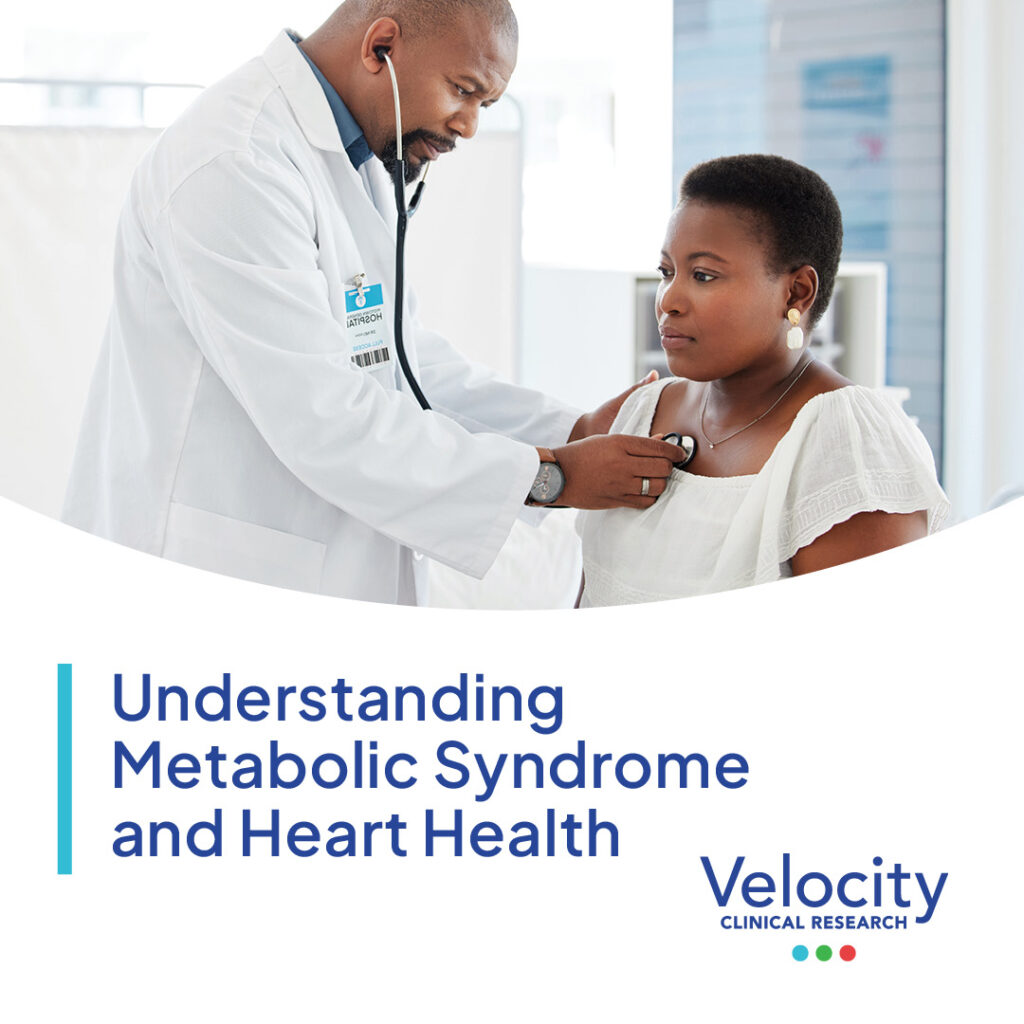At Velocity Clinical Research, we are committed to enhancing patient well-being and community enrichment through education. Many of the diseases we research focus on the relationship between metabolic syndrome and cardiovascular risk factors.
Understanding Metabolic Syndrome
Metabolic syndrome is more than just a buzzword; it is a cluster of health conditions that significantly impact heart health. When three or more of the following risk factors converge, metabolic syndrome is identified:
- High Blood Glucose (Sugar): Elevated blood sugar levels.
- Low Levels of HDL (“Good”) Cholesterol: The protective cholesterol that keeps arteries healthy.
- High Triglycerides: Fats that circulate in the blood and can pose risks.
- Large Waist Circumference or “Apple-Shaped” Body: Abdominal obesity.
- High Blood Pressure: A silent but potent threat to the cardiovascular system.
The Hidden Danger
Individually, these risk factors are concerning. When combined, however, their impact multiplies. The combination of high blood pressure, elevated fasting blood sugar levels and abdominal obesity dramatically increases the risk for heart disease, stroke, and other cardiovascular conditions.
Metabolic Research at Velocity
At Velocity, we are committed to better understanding the underlying causes of metabolic syndrome. Our assessments delve into the root causes of this condition:
- Overweight and Obesity: How excess weight contributes to the syndrome.
- Insulin Resistance: A key player in metabolic dysfunction.
- Physical Inactivity: The role of movement in preventing or exacerbating the syndrome.
- Genetic Factors: How genetics may lead to predisposition of risk factors
- Aging: The significance of age in this context.
Your Role in Metabolic Research
We invite you to contact us to see if you qualify to participate in our clinical trials where you can become an essential part of the solution. You could receive a consultation as part of your encounter which can address the following:
- Lifestyle Changes: Guidelines to help shed excess body fat, embrace physical activity, and adopt a heart-healthy diet.
- Regular Monitoring: Recommendations on managing blood glucose, cholesterol, and blood pressure.
- Knowledge Sharing: Educate yourself about metabolic syndrome and its impact.
Help scientists explore metabolic syndrome. Your participation in research could help unlock vital insights, develop preventive strategies, and empower individuals to take charge of their heart health.

